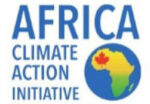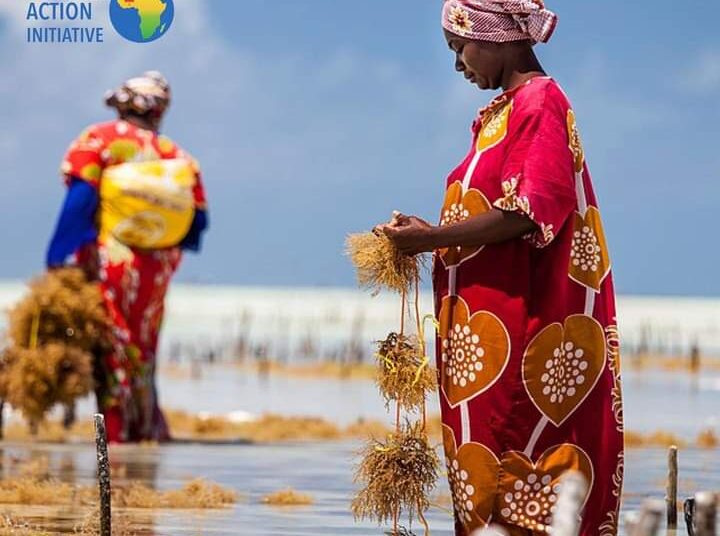News
Environment/Climate: The Africa Climate Action Initiative (ACAI) and partner NGOs launch awareness-raising meetings with African environment ministers on the Tapp coalition's advocacy letter
Africa Climate Action Initiative (ACAI) and its NGO partners (14 countries) are committed to solving critical environmental issues and promoting sustainable development, and it is in this spirit that ACAI has joined the TAPP Coalition to support its letter advocacy to develop a special tax on meat consumption in OECD countries and China aimed at generating sustainable income to supply a special fund intended to compensate for losses and damages linked to climate change and adaptation/ resilience of developing countries in the South to climate effects.
The TAPP Coalition, made up of several non-governmental organizations (NGOs) including ACAI, has worked diligently to advance a crucial agenda that revolves around advocating for a tax on meat consumption among countries across the OECD and China. This advocacy is not simply a call for tax measures, but a strategic move to contribute to global efforts to mitigate climate change, promote environmental sustainability and address the profound consequences of meat consumption on our planet.
In light of the critical nature of this initiative, ACAI recommends and encourages its NGO member partners and regional technical advisors to sensitize the environment ministers of their respective countries about this initiative so that they support and defend this initiative during the COP on climate (UNFCCC). These meetings with ministers will serve as a platform for ownership and endorsement of the TAPP Coalition's comprehensive advocacy letter, which highlights the merits of imposing a tax on meat consumption in OECD countries and China and describes a transparent and accountable mechanism for the use of tax revenues.
The importance of collaborating with environment ministers in Africa cannot be overstated, given their central role in developing and implementing policies that directly impact the environmental landscape. This strategic approach aligns with the TAPP Coalition’s vision to secure the engagement of influential decision-makers, thereby fostering a collaborative effort toward lasting change. The proposed tax on meat consumption serves not only as a revenue generation tool but, more importantly, as a catalyst for behavior change, promoting healthier and more sustainable food choices.
The TAPP Coalition’s advocacy letter, which ACAI is encouraging to present to environment ministers from 14 partner countries, comprehensively sets out the rationale for the proposed tax. It highlights the environmental, health and economic benefits that such a tax could bring, providing compelling arguments for its implementation. Additionally, the letter provides a detailed roadmap for channeling tax revenues into the Developing Countries Loss and Damage Fund, thereby addressing the immediate and long-term challenges faced by vulnerable nations due to climate change. .
To prepare for meetings, ACAI recommends that its partners highlight the following key points from the TAPP Coalition's advocacy letter. These are elements which are among others:
Environmental impact : Environmental impact: ACAI members will clearly articulate the environmental implications of meat consumption and how a tax can encourage a transition to more sustainable and environmentally friendly eating practices.
2. stakeholder involvement Stakeholder Involvement: Stakeholder ownership of the letter.
3. Economic viability Economic Viability: They will present evidence supporting the economic viability of a meat tax, including potential revenue generation and job creation in alternative and sustainable industries.
Financing for losses and damages Financing for Loss and Damage: They will emphasize the direct link between the proposed tax and the financing of the Loss and Damage Fund in developing countries, demonstrating your commitment to global solidarity to address related challenges to the climate.
5. International cooperation International cooperation: They will highlight the importance of collaboration among nations, particularly OECD countries and China, to address the shared global responsibility for climate change mitigation.
As we collectively champion this initiative, it is essential to strike a balance between assertiveness and diplomacy. The TAPP Coalition Advocacy Letter is a compelling and well-researched document that can be leveraged to effectively convey the urgency and importance of this issue.
By fostering collaborative dialogues with environment ministers, we can lay the foundations for policy changes that will have a lasting positive impact on our environment and the well-being of future generations. Also read on https://www.tappcoalition.eu/images/Declaration-OECD-meat-responsibility-COP28-French-version-1701683824.pdf

